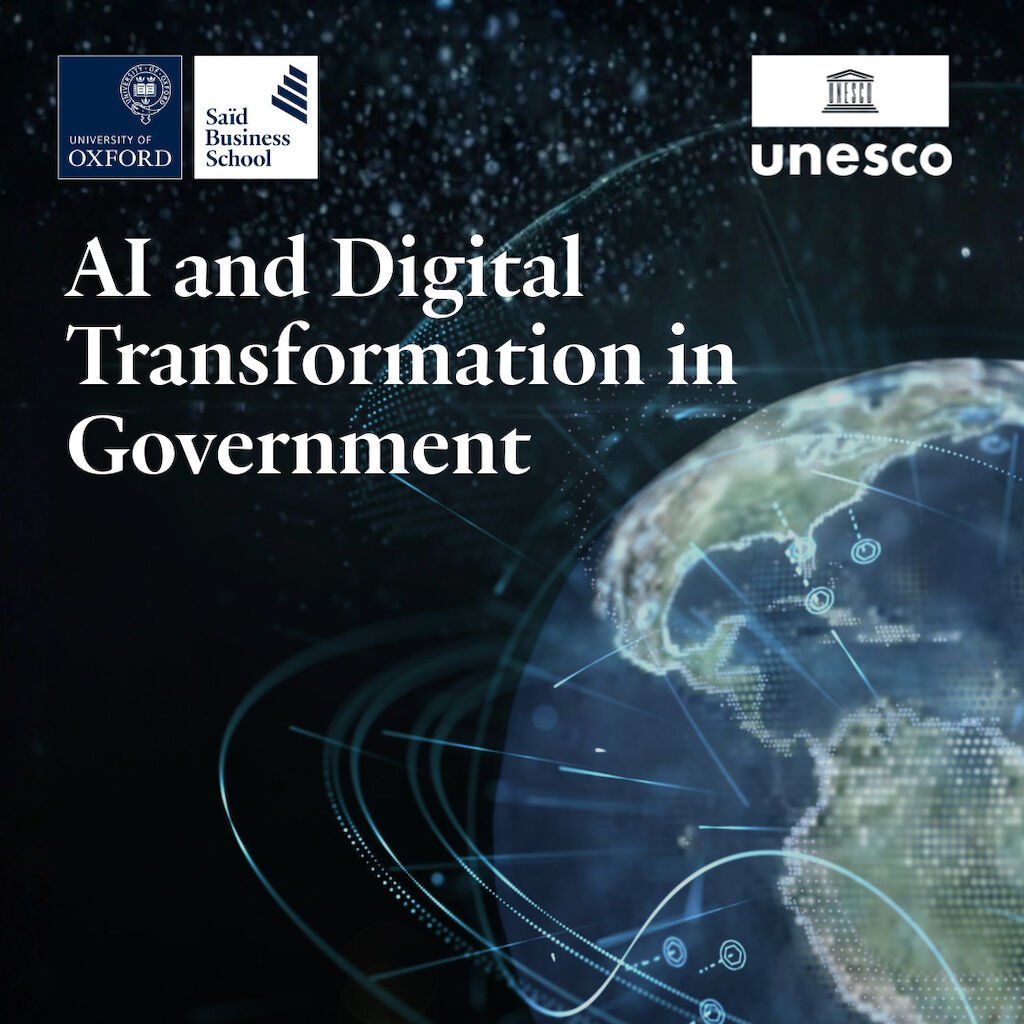According to the World Bank the Public Sector employs one third of the global workforce. Yet fewer than half of the world’s countries have integrated AI into their national e-government strategies, and only 21% address its ethical use in public administration (UN DESA 2024). As a result, millions of public officials are navigating rapid technological change without clear guidance or adequate training. To close this skills gap and ensure no country is left behind, a new global learning initiative is being launched.
On 10 November 2025, UNESCO, in collaboration with the University of Oxford’s Saïd Business School, will launch a free online course titled “AI and Digital Transformation in Government”. The course is designed to equip civil servants and public sector leaders worldwide with the knowledge and tools to navigate the challenges of artificial intelligence and digital transformation responsibly.
The initiative is developed in partnership with the SPARK-AI Alliance, a global network established by UNESCO and over 50 public administration training organisations. The Alliance aims to enhance AI and digital transformation capabilities across the public sector and promote inclusive, human rights-based approaches to digital transformation in government.
Key Details:
- Languages: English and Spanish on 10 November; French, Portuguese, and Arabic to follow.
- Cost: Free of charge
- Duration: 12 hours
- Certification: Joint certificate from the Saïd Business School, University of Oxfordand UNESCO.
- Modules: AI & Human Rights, Ethics, Data Governance, Inclusive Service Design, Leadership, and hands-on experience with Generative AI tools.
- Target Audience: Civil servants and public administration professionals at all levels, regardless of technical background.
Registration: https://oxsbs.link/unesco
Tawfik Jelassi, UNESCO Assistant Director-General for Communication and Information said:
‘The future of digital governance depends on people. This course is a strategic intervention to equip civil servants with the competencies needed to govern AI responsibly and inclusively. By investing in people, we build trust in public AI systems and ensure that technology serves humanity—not the other way around.’
Caroline Williams, Executive Director, Oxford Saïd Online, said:
‘At Oxford, we believe education is one of the most powerful tools to shape a fair and inclusive digital future. This course is about more than technology, it is about empowering civil servants everywhere with the knowledge and confidence to navigate AI ethically, in ways that strengthen public trust and serve societies equitably. We are proud to partner with UNESCO in opening up this vital learning opportunity to governments and public leaders globally.








